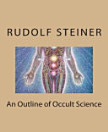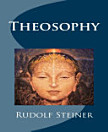Mystics of the Renaissance and Their Relation to Modern Thought, Including Meister Eckhart, Tauler, Paracelsus, Jacob Boehme, Giordano Bruno, and Others
About this ebook
Any one who does not approach my world of ideas without preconceptions is sure to discover therein contradiction after contradiction. I have quite recently (Berlin, 1900. S. Cronbach) dedicated a book upon the world conceptions of the nineteenth century to that great naturalist, Ernst Haeckel, and closed it with a defence of his thought-world. In the following expositions, I speak about the Mystics, from Master Eckhart to Angelus Silesius, with a full measure of devotion and acquiescence. Other Òcontradictions,Ó which one critic or another may further count up against me, I shall not mention at all. It does not surprise me to be condemned from one side as a ÒMysticÓ and from the other as a ÒMaterialist.Ó When I find that the Jesuit Father Mller has solved a difficult chemical problem, and I therefore in this particular matter agree with him unreservedly, one can hardly condemn me as an adherent of Jesuitism without being reckoned a fool by those who have insight.
Whoever goes his own road, as I do, must needs allow many a misunderstanding about himself to pass. That, however, he can put up with easily enough. For such misunderstandings are, in the main, inevitable in his eyes, when he recalls the mental type of those who misjudge him. I look back, not without humorous feelings, upon many a ÒcriticalÓ judgment that I have suffered in the course of my literary career. At the outset, matters went fairly well. I wrote about Goethe and his philosophy. What I said there appeared to many to be of such a nature that they could file it in their mental pigeon-holes. This they did by saying: ÒA work such as Rudolf SteinerÕs Introduction to GoetheÕs Writings upon Natural Science may, without hesitation, be described as the best that has been written upon this question.Ó
When, later, I published an independent work, I had already grown a good bit more stupid. For now a well meaning critic offered the advice: ÒBefore he goes on reforming further and gives his Philosophy of Freedom to the world, he should be pressingly advised first to work himself through to an understanding of these two philosophers [Hume and Kant].Ó The critic unfortunately knows only so much as he is himself able to read in Kant and Hume; practically, therefore, he simply advises me to learn to see no more in these thinkers than he himself sees. When I have attained that, he will be satisfied with me. Then when my Philosophy and Freedom appeared, I was found to be as much in need of correction as the most ignorant beginner. This I received from a gentleman who probably nothing else impelled to the writing of books except that he had not understood innumerable foreign ones. He gravely informs me that I should have noticed my mistakes if I had Òmade more thorough studies in psychology, logic, and the theory of knowledgeÓ; and he enumerates forthwith the books I ought to read to become as wise as himself: ÒMill, Sigwart, Wundt, Riehl, Paulsen, B. Erdmann.Ó What amused me especially was this advice from a man who was so ÒimpressedÓ with the way he ÒunderstoodÓ Kant that he could not even imagine how any man could have read Kant and yet judge otherwise than himself. He therefore indicates to me the exact chapters in question in KantÕs writings from which I may be able to obtain an understanding of Kant as deep and as thorough as his own.








